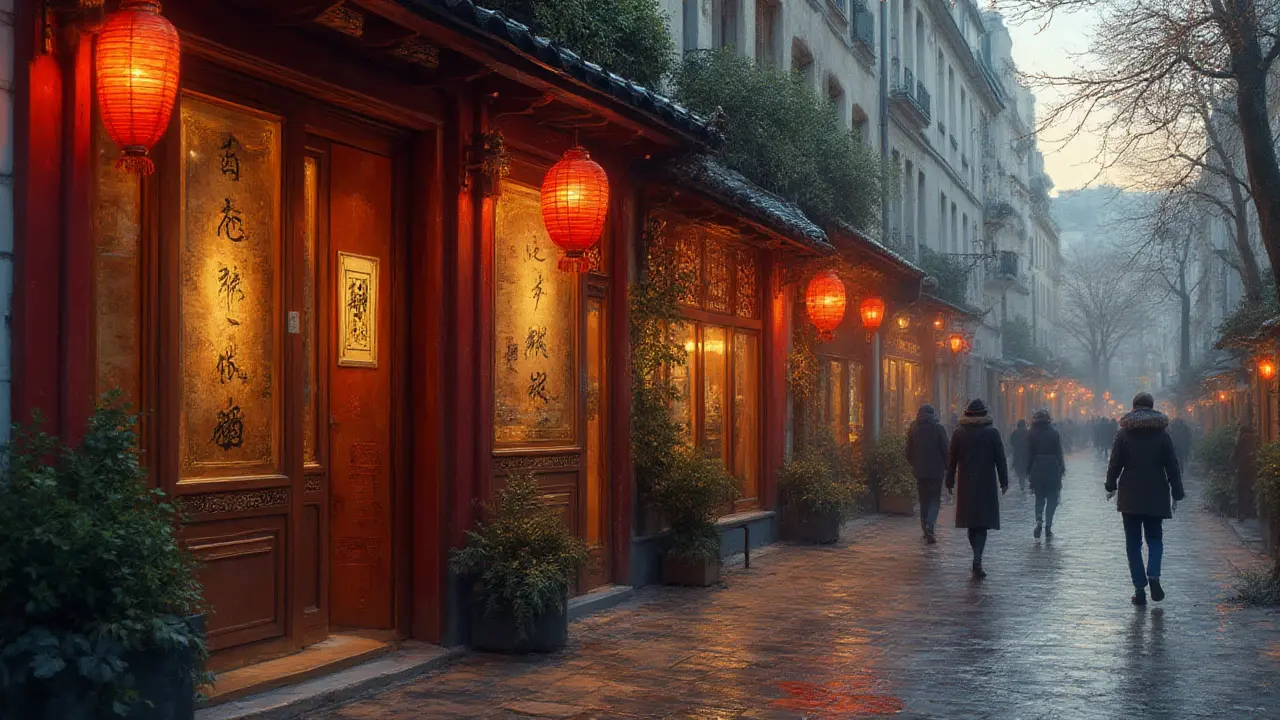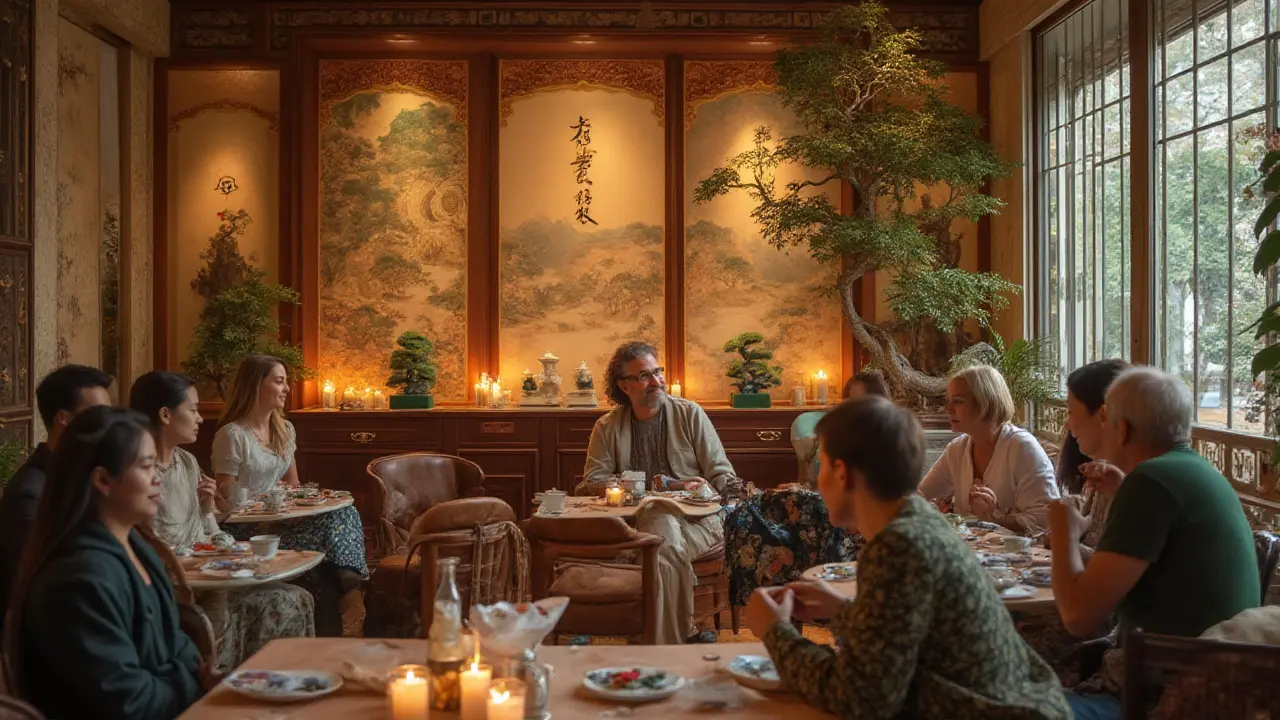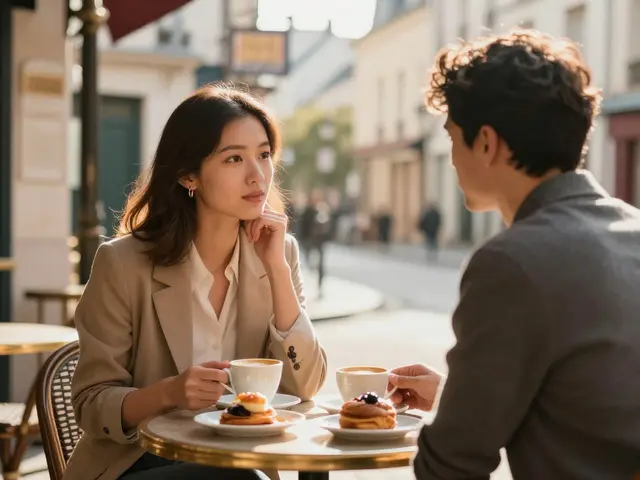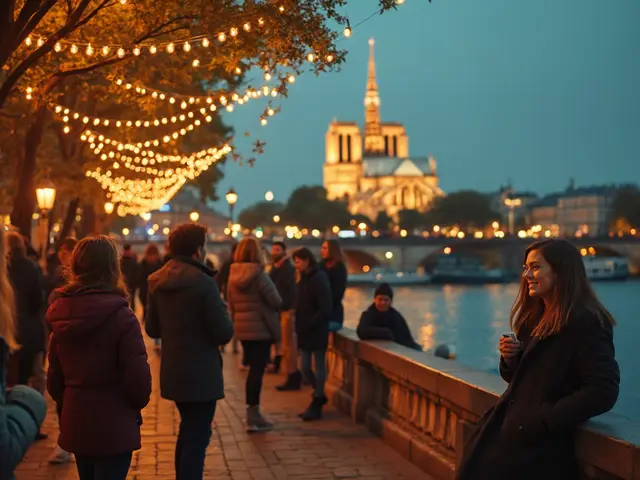Best Chinese Massage Centers in Paris: Authentic Relaxation and Wellness Spots

You land in Paris with stiff shoulders from the flight, only to realize—Parisians are obsessed with relaxation rituals, but good luck finding the real deal. Think all Chinese massage centers in Paris are the same? That’s where things get interesting. You’ll spot neon signs blaring “massage traditionnel chinois” nearly everywhere, but quality varies wildly. If you want to trade muscle knots for bliss without falling for tourist traps, you need the inside scoop. Believe it or not, the history of Chinese massage in Paris goes way back, and the demand keeps growing. A 2024 travel report from the Paris Tourism Office showed massage bookings jumped by 37% in a single year, with Chinese-style therapies topping the list for expats and locals alike. So why is everyone queuing up for these sessions?
Let’s peel back the curtain. Modern Chinese massage centers in Paris are a collision of authenticity, tradition, and Parisian flair. Wandering into one of these places is a total culture trip—even before you’re lying face-down, wrapped in warm towels. You’re greeted, usually by bilingual staff (French and Mandarin, sometimes English), often surrounded by plants and soothing water features. It’s a world away from the city’s hectic boulevards. What hooks people isn’t just the “glamour of the East.” It’s the real results: true Chinese massage—known as Tuina, with deep roots in Traditional Chinese Medicine (TCM)—focuses on more than just sore muscles. It’s about restoring your body’s balance.
What Makes a Great Chinese Massage Experience in Paris?
With almost 600 massage parlors scattered across Paris, picking a truly outstanding Chinese massage center involves more than browsing fancy storefronts. The best spots stick closely to centuries-old traditions—think skilled techniques, licensed therapists, and a no-nonsense dedication to cleanliness. Tuina, meaning “push and grasp,” might sound straightforward but it’s a complex dance of acupressure, rolling, kneading, and rhythmic movements along your body’s meridian lines. Done right, it unlocks muscle tension, stimulates energy flow (called “Qi”), and can even help headaches, insomnia, or post-flight burnout. A study published in the December 2023 issue of European Alternative Health Journal showed regular Tuina reduced back pain more effectively than standard Swedish massage over a four-week window in Paris-based clinics.
What sets a great Chinese massage experience apart in Paris? Culture and credentials. The best centers are usually family-run or are franchises linked back to mainland China or Hong Kong. Many therapists have learned their trade over years of apprenticeship, often beginning as teenagers. Real Tuina centers will also use natural balms with herbal scents—ginseng or camphor wafting through the air, not just any generic oil. Look for certifications on the walls: the French government requires all massage therapists to declare their professional status and display valid diplomas. Ask about their “Techniques de massage chinois” certificate—it’s the mark of serious training. And of course, hygiene: good centers are spotless, offer disposable linens, and uphold privacy standards. Don’t be afraid to ask if a center has received praise from reputable travel sites, or spot-check independent reviews.
Top Chinese Massage Centers in Paris: Where Tradition Meets Comfort
Ready to ditch overwrought Parisian spas for something more grounding? Here’s where Paris really shines—its Chinese massage centers attract everyone from stressed-out corporate types to insomniac students and jet-lagged travelers. Some have been around since the early 2000s, quietly perfecting their craft. Asian Zen Wellness, one of Paris’ highest-rated spots, has a cult following for its blend of Tuina and acupressure therapies. Staffed almost entirely by Chinese nationals with over 15 years’ combined experience, their specialty is the 60-minute full-body recovery session. Clients rave about how they manage to unknot necks without bruising, and their foot reflexology is practically legendary—reviewers on multiple travel forums have called it ‘life-changing’ after marathon city walks.
Silk Road Relaxation hides on a side street but boasts steady five-star feedback. Their therapists speak English, French, and Mandarin—a trifecta for nervous newbies. Their signature “Bamboo Vitality” massage uses actual bamboo sticks to roll out deep muscle tension, a technique borrowed from ancient Chinese martial artists. For the more wellness-inclined, try centers attached to Traditional Chinese Medicine clinics: jade stone massages, herbal compresses, and full consultations with TCM doctors are on offer. There’s even a quirky center run by a retired Shaolin Temple monk, known for his charismatic explanations of Qi energy and mindfulness with every kneading movement. If you want somewhere truly Parisian, opt for family-run spots in the 3rd arrondissement. Here, you’ll find multi-lingual staff serving up steaming cups of jasmine tea after your session—just one extra touch that hooks locals.

Insider Tips: Booking, Etiquette, and What to Expect
Booking a Chinese massage Paris session doesn’t have to be daunting, but you’ll want to keep a few things in mind. For starters, always check if the center accepts walk-ins—many traditional places require appointments, especially after lunch hours (Parisians love their midday siestas, therapists included). Weekend evenings can get crazily busy, especially during tourist peaks. Pricing ranges dramatically: you might find 30-minute taster sessions starting from €40, with hour-long deep tissue routines hitting €80-€110. Therapists generally appreciate if you arrive five minutes early, just to settle and fill any brief health forms. (If you have allergies to specific oils or balms, speak up—the best centers are used to swapping out products on request.)
Tipping isn’t strictly mandatory in Paris, but a €5-€10 bonus for exceptional service is appreciated. Dress comfortably. While staff provide disposable shorts or robes, it’s best to avoid heavy perfumes or jewelry, since these can mess with the herbal scents and oils. Expect a lot of quietness—traditional centers keep the ambiance peaceful, so put your phone on silent. If you’re unsure what massage style to book, ask for a therapist’s honest recommendation. They’ll often suggest a combination session—half Tuina, half foot reflexology—for the best all-around effect. And here’s a lesser-known perk: many Chinese massage centers in Paris team up with local herbal shops, giving you discounts on herbal teas or liniments if you mention your appointment. Some even throw in a steaming cup post-session.
Chinese Massage vs. Parisian Spa: What’s Right for You?
Some might ask: why choose a Chinese massage when Parisian spas offer wine scrubs or gold-infused body wraps? It’s all about what you need. Parisian spas cater to showiness and pampering, while Chinese massage centers dive deep—both literally and figuratively. Their hands-on Tuina technique and focus on energy flow make them powerful for chronic tension, athletic recovery, or pure stress relief. It’s not sugary sweet—if you crave a massage that leaves you totally limp and spaced out, you’ll get more than you bargained for. The results stick. Customers often report lingering relaxation and improved sleep for days. Plus, many Chinese centers include a consultation chat, tailoring treatments to your mood or health condition in real time.
If you’re into number-crunching, here’s a quick look at how locals and tourists rate their massage experiences in Paris:
| Type of Center | Average Cost (1 hour) | Customer Satisfaction (out of 5) | Repeat Visitors (%) |
|---|---|---|---|
| Chinese Massage Center | €85 | 4.7 | 61% |
| Parisian Traditional Spa | €120 | 4.3 | 35% |
| Hotel Spa Chain | €190 | 4.0 | 20% |
These numbers are from a survey done by MassageParis.fr in spring 2024, showing that people who try Chinese massage are way likelier to come back for more. Another quirky trend? About 40% of visitors first book out of curiosity—after hearing from a friend or fed up with a sore neck from city sightseeing.
So, next time you’re wandering along the Seine, craving an antidote to the tourist chaos, skip the crowd-pleasing spas and head for a Chinese massage center that values technique, calm, and centuries-old know-how. Whether you’re after relief or just a new side to Paris, the city’s thriving scene won’t disappoint. And once you’ve had a proper Tuina session, you’ll never look at relaxation the same way again.





